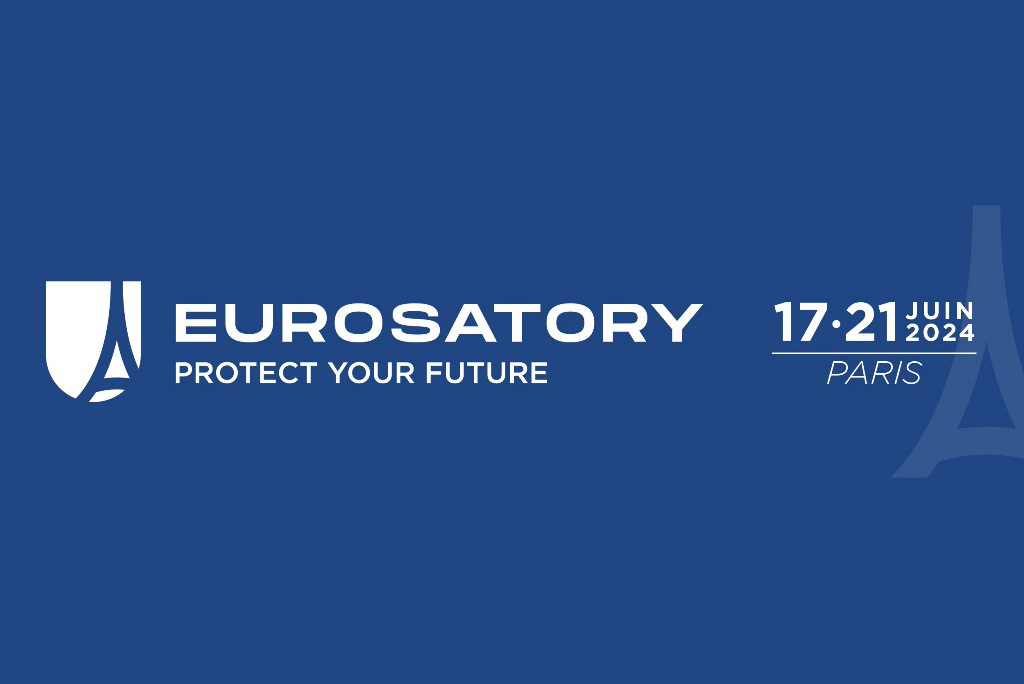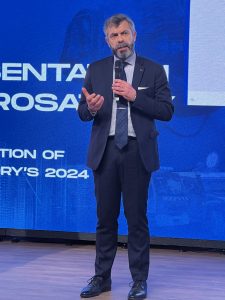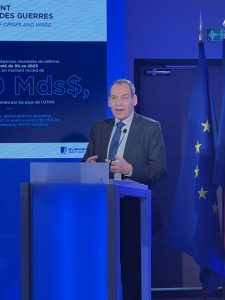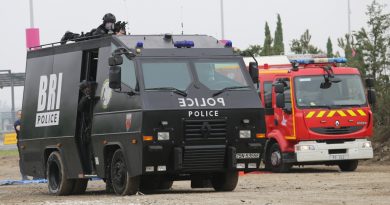
EUROSATORY press conference anticipates main exhibition topics, this year event taking place in a context of increasing diplomatic tensions and conflicts
“If you come to Eurosatory, you will not only find what you are looking for, but also what you are not looking for or not yet,” General (ret) Charles Beaudoin, Director General of Eurosatory, said highlighting the many advantages of the 2024 edition of the Paris exhibition during the press presentation that took place Wednesday March 19
Three months before this event, that will run from 17 to 21 June at the Paris Nord Villepinte Exhibition Centre, more than 1,600 exhibitors have already registered, a figure close to the 1,800 expected exhibitors. In addition, 250 official delegations from 100 countries will take part in the show, which will host 41 national pavilions.

Charles Beaudoin recalled that only 17% of exhibitors present a lethal offer. Eurosatory, through its global approach, is therefore “the only defence exhibition in the world” making it possible to have this offer ranging from “high-intensity warfare to emergency medical aid,” e underlined. “Eurosatory has resolutely positioned itself not only on defence and internal security, but also on civil security and aid to populations,” he stated. “Eurosatory aims to be fair for all-round crisis management.”
Conflicts, including high intensity ones such as that in Ukraine, are developing in an increasingly unstable world. This is pushing states to increase their defence budgets, as indicated by Marc Darmon, the president of GICAT, the association of French land defence industries, who highlighted that 25 of the 27 European Unuin states have increased their military spending between 2022 and 2023. “The return to war on the European continent has mobilized the entire industry to both accelerate deliveries, facilitate industrial cooperation between States, and strengthen research and development,” Marc Darmon stated.

In France, the military programming law (LPM) 2024-2030, with a budget of 413 billion euros, makes it possible to address the many challenges that arise. The French defence industry, “an industry of excellence”, rejoiced Marc Darmon, has been particularly in demand since 2022. French manufacturers have shown their capacities for “increased responsiveness”, allowing, thanks to their constant mobilization, to reduce production times. Thus, the production tome of Nexter KNDS Caesar cannons was reduced from 30 to 15 months. MBDA’s Mistral missile has seen its production time reduced from 24 to 15 months, while the production rate will increase, from 20 to 40 missiles per month from 2025. Another example is the three-fold increase in two years of the number of shells produced by Nexter, which will reach 150,000 in 2024.

Charles Beaudoin and Marc Darmon also discussed the challenges that will arise in the future, particularly in terms of innovation. The latter recalled that artificial intelligence is “everywhere today”, particularly in “detection systems”. Another subject increasingly taken into account by the defence sector is the environment. Global warming “generates a multiplication of environmental and humanitarian crises,” noted Charles Beaudoin, who also mentioned the “ecocidal nature of wars”, an important subject in his eyes which should be addressed.
The press conference also saw the presence of Ihor Bezkaravainyi, the Deputy Minister of Economy of Ukraine, in charge of demining.



